Resources
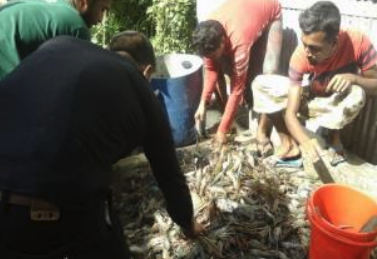
Leading the Way
Souren Mazumder, of Bagerhat Sadar, Bagerhat, started in aquaculture seven years ago after finishing his university degree, as he was not able to find a suitable job in his field of study. He saw that a few people in his area were making money from shrimp and prawn farming, while after Cyclone Aila rice production […]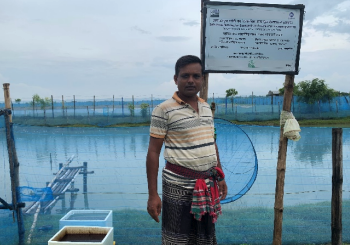
Innovative Farmer
“Shariful Islam is a shrimp farmer from Mehendinagar village, Shyamnagar Upazila of Satkhira District, involved in traditional shrimp farming for the last 10 years. His grandfather and father used to cultivate rice. His elder brother started shrimp cultivation in the 80s as rice productivity was falling due to salinization in the area and shrimp offered […]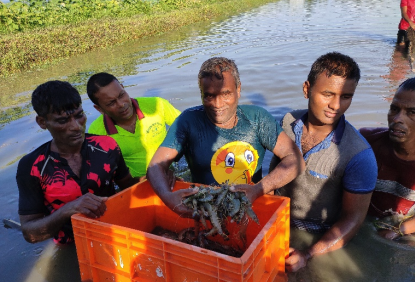
Experienced Farmer More Than Doubles His Income
Ponchanon Biswas is a clerk at the high school adjacent to his home in Mohishdanda village, Assasuni, Satkhira. The limited salary from his job is not adequate to support his family of six. To supplement his income, for the last 20 years he has been cultivating shrimp, and has become an experienced farmer. He has […]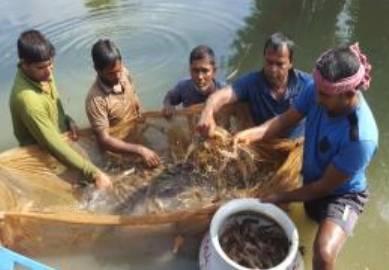
Six Steps to Success
“My neighboring farmers were surprised to see my production. They stocked PLs before I did, but I harvested and sold my prawn and carp before them. I have harvested double compared to my previous year’s production, but the others did not get good production,” said Din Bandhu Biswas, Moshihati, Abhoynagar, Jashore. Din Bandhu Biswas has […]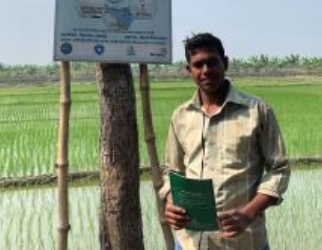
Production, Profits & Planning
“I never expected such production, never thought this huge production and profit were possible,” said Rothindranath Mazumder. Rothindranath is a young prawn-carp farmer of Abhoynagar, Jashore, who started farming after finishing his degree. He is the first member of his family to take up prawn-carp farming and has been pursuing it for the last four […]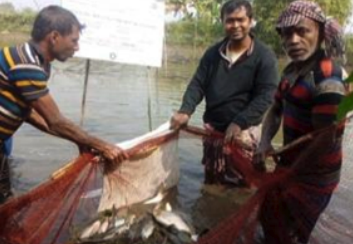
Farmer Achieves Huge Profit
His father and grandfather have long farmed shrimp and fish, so Palash Biswas (Chitalmari, Bagerhat) has known the business since his childhood. Now he is a lecturer in accounting at a government college but sees the potential to make a good profit in aquaculture if he can develop it as a successful sideline. When the […]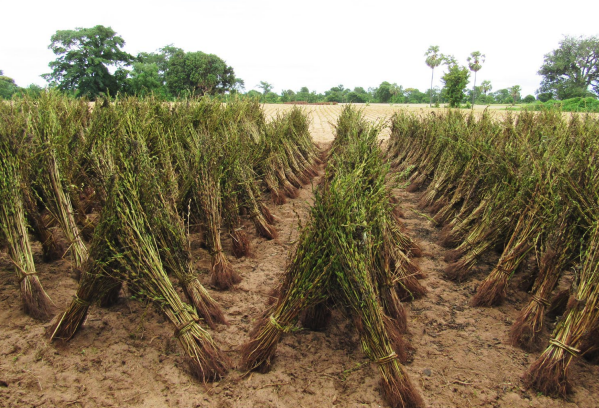
Adaptive Approaches to Facilitating Finance in Myanmar’s Agriculture Sector: A Review
In collaboration with local partners in Myanmar, USAID’s Value Chains for Rural Development (VCRD) project is helping rural smallholder farmers and processors find affordable pre-season financing to successfully enter higher-value domestic and international markets. After five years of VCRD value chain development assistance for soy, ginger, coffee, sesame, and melons, better skilled, equipped, organized and […]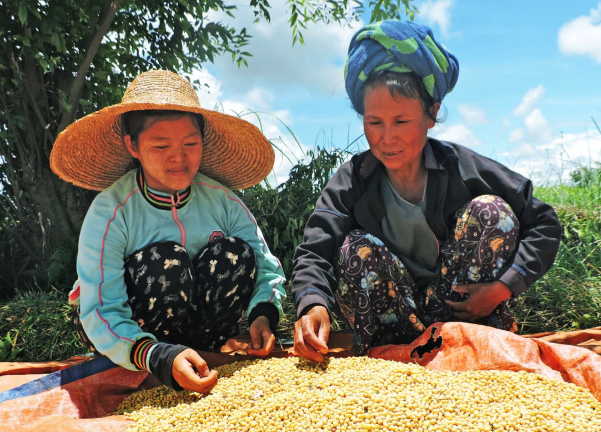
From Seed to Fork: Triggering Systemic Changes in Myanmar’s Soybean Sector
USAID/Burma’s Value Chains for Rural Development project (“the project”) supports soy farmers, processors, and input suppliers to change the way they do business by proving that inclusivity, transparency and commitment to quality leads to increased income generation throughout the value chain. This report highlights value chain developments and learning over a five-year period, from 2015 […]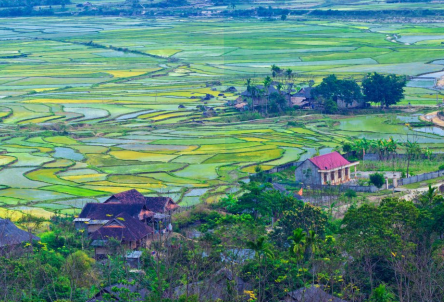
Side Event at COP25 in Madrid, Spain
At this Side Event hosted by Winrock International and the Government of Vietnam, we will explore how governments and implementing partners have engaged the private sector to support the development, financing, and implementation of National Adaptation Plans (NAPs).
